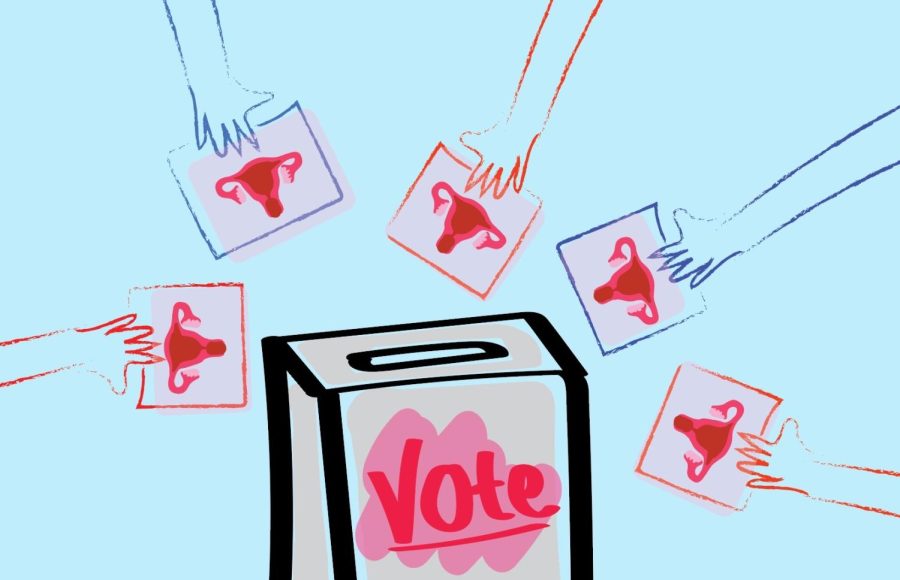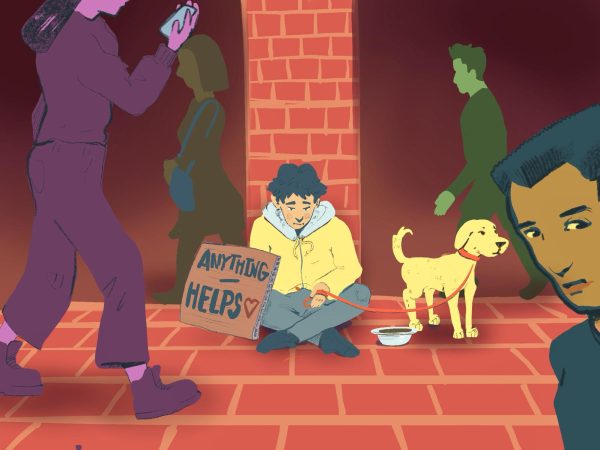Vote YES for the Reproductive Liberty Amendment Nov. 8
This election cycle, the Reproductive Liberty Amendment will be on the ballot and Vermonters will have the chance to enshrine reproductive autonomy into the state’s constitution.
After a four-year-long debate, the legislature finally approved the proposal—also known as Proposition 5—with 107 lawmakers in favor and 41 against, according to a Feb. 8 Associated Press article.
This ballot arrives in a timely fashion following the Supreme Court’s decision to overturn Roe v. Wade and to eliminate the federal constitutional right to abortion with their decision for Dobbs v. Jackson Women’s Health Organization in June.
In a post-Roe world, each state gets to decide whether or not abortion is legal. Currently, abortion is legal at all stages of pregnancy in Vermont.
The Reproductive Liberty Amendment will not alter today’s abortion laws, but will instead transfer discretional power away from lawmakers and into the rightful hands of patients and their healthcare providers.
The word “abortion” is not on the bill because this proposal more broadly ensures bodily autonomy. Such liberties include the right to dictate the terms of pregnancy, use of birth control, and abortion, according to Vermont’s Reproductive Liberty Coalition.
This ballot initiative goes much further than solely protecting the right to an abortion. It is an all-encompassing amendment that will safeguard individuals’ decision-making power regarding all reproductive health matters, according to a Sept. 5 CNN article.
The Reproductive Liberty Amendment would add the following text to the Vermont Constitution:
“That an individual’s right to personal reproductive autonomy is central to the liberty and dignity to determine one’s own life course and shall not be denied or infringed unless justified by a compelling State interest achieved by the least restrictive means,” as stated in a Vermont Public article.
Voting “yes” supports the amendment of the Vermont constitution to include protective language regarding the rights to reproductive autonomy and the prohibition of government intervention in such matters. Voting “no” opposes the amendment to include such language.
If approved by voters, these protections surrounding reproductive rights will take immediate effect and Vermont will be one of the first states to explicitly protect personal reproductive autonomy in its state constitution.
Furthermore, this amendment would rightfully place reproductive jurisdiction into the hands of doctors and patients—not unqualified politicians.
This is a huge opportunity to protect not only Vermonters, but also out-of-state refugees seeking their fundamental right to reproductive health care.
For centuries, people with ovaries have been heavily excluded from biomedical research due to unproductive patriarchal assumptions about hormonal variation between the sexes, according to Stat News. Today, the female-assigned reproductive system is described as “delicate and complex,” according to the Centers for Disease Control and Prevention.
Since scientists are only just beginning to understand the female reproductive system, how are politicians supposed to dictate the ways in which a uterus should operate? Do they even know where the uterus is?
As of Sept. 26, abortion bans have been enacted in 15 states. There are bans on hold in an additional eight, meaning different judges are blocking the bans, keeping them on hold to be looked at again by the court.
This leaves nearly 40 million women of reproductive age without access to basic reproductive health care, according to an Aug. 2 NPR article.
This is the first generation in 50 years that won’t know what it’s like to have reproductive rights.
Abortion access is health care. It means freedom from forced pregnancy. It means being able to finish your degree. It means starting a family on your own terms, on your own timeline. It means fewer children will end up in foster care, fewer families on the street.
If the pro-life movement was truly “pro-life,” they would be “saving” lives outside the womb—the lives of people who are suffering here and now.
But what are pro-lifers doing to help children in foster care? Families living on food stamps? Those suffering from homelessness or addiction?
Those who are alive and suffering are often portrayed as scapegoats to societal problems. In reality, there are people who are simply underserved. These people deserve life and dignity—and allocation of resources—far more than an embryo does.
Pro-life policies are not as simple as they claim to be. It isn’t just about the fetus. The rationale is predominantly anti-choice and works to restrict and control women, not to save “lives.”
Furthermore, this tactic is a form of population control and is rooted in the dark history of our country.
Such restrictions carry out the legacy of white supremacy, disproportionately impacting marginalized communities. For instance, Black women have the highest rate of abortions, according to a 2019 report done by the CDC.
Black women in the U.S. are more likely to die from childbirth or pregnancy than any other race. Similarly, Black women are more likely to experience maternal health complications during pregnancy, according to a June 30 article from The Texas Tribune.
Now, many will be without access to fundamental health care.
With these measures in place, America is essentially forcing childbirth upon its citizens, just like it did before Roe in 1973, going as far back as slavery.
However, placing governmental restrictions on abortion will not so much lower rates as it will make abortion more dangerous.
Without access to abortion, many Americans will have no other option than to go back in time and resort to dangerous, unregulated measures, like coat hanger abortions and underground abortion networks.
Those who cannot access reproductive health care due to geographic or socioeconomic reasons will face extreme risk.
Reproduction is a matter of health and bodily autonomy, not of politics or religion.
A political issue or not, we must challenge the laws because Americans are voting to dictate the health and life outcomes of millions across our nation.
Our voting system is broken, but right now it’s all we’ve got. This proposal would enshrine personal reproductive autonomy into Vermont’s state constitution, meaning reproductive freedom would be protected by law, just like freedom of speech.
On Nov. 8, our bodies will be on the ballot. That is why it is crucial for you to vote “yes” for the Reproductive Liberty Amendment.
Visit the Vermont Secretary of State website for voting information.











![Can’t buy me [self] love](https://vtcynic.com/wp-content/uploads/2024/04/self-care-FINAL-600x398.jpg)
